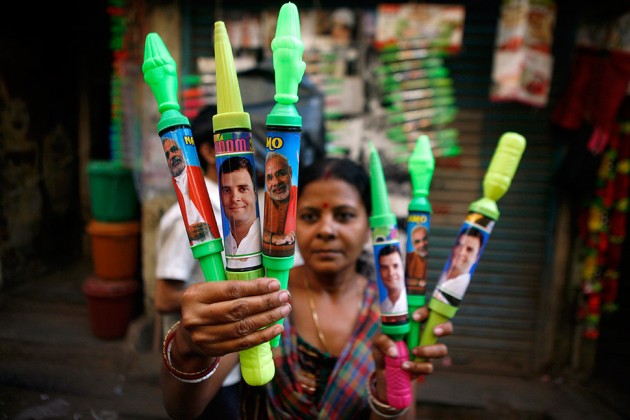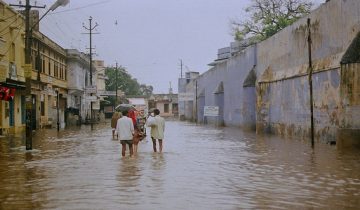India's Youth Will Determine the 2014 General Election

India has long been identified as the world’s largest democracy, and it’s growing even larger. There are 814 million voters registered to vote in this year’s general elections. That’s 100 million voters more than there were in the 2009 elections, and more voters than the combined populations of the United States, Indonesia and Brazil. Not only does India have a huge population, but most of this population is very young. More than half of India is under the age of 24, and 378 million of all eligible voters are between the ages of 18 and 35. With 150 million first time voters, 23 million of whom are 18, sheer numbers are going to give India’s youth a powerful voice in India’s politics this coming month. This begs the question, what does India’s youth want?
As it turns out, the answer is quite simple – jobs. As millions of people leave school and join India’s labor market, the economy is struggling to keep up. 5% growth would be fantastic for most developed countries, but it’s a big step down from 8.5% a decade ago. Flagging growth means that many young people are left without jobs or are unable to get work in their fields. From 2005 to 2010, 60 million people entered the work force, but the economy only added 1 million jobs. Widespread inflation is hurting everything from agriculture to manufacturing, and these problems are further exacerbated by rising cost of living and education.
The economy isn’t the only issue India’s youth care about. Like this previous I4SC article mentions, corruption is rampant in India, and it’s a big issue in the upcoming elections. The younger generation grew up in a political climate marked with scandals and nepotism, and now that their voice can be heard, they’re looking for a party that can usher in an era of transparency. This is shown by the rise of the Aam Aadmi Party, as chronicled by another I4SC article. The massive uproar surrounding the Dehli rape has also started a narrative about women’s rights issues. Younger voters are more progressive and are pushing for complete equality for women in a society that has historically been deeply gendered.
India’s main opposition party, the Bharatiya Janata Party (BJP) has recognized this and their manifesto talks about the same issues mentioned above. Their charismatic leader, Narenda Modi, has captured the hearts of India’s youth. His poor background and egalitarian message has given him a large base of support, including his strong nationalist Hindu firebrand. The BJP also claims it will break down corruption in national politics and released election finance numbers for all their candidates. Pre-election polls show the BJP with a lead, but they’ll probably fall short of a majority. This means India will have to patch together yet another coalition government with numerous radical regional parties. No matter what the results of the upcoming election are, India’s youth are gaining an increasingly important role in politics and will continue to shape the nation’s future.
[Image Attribute: BwBx]



